Start Seeing Motorcyclists
We have heard the campaign slogan “start seeing motorcyclists”

I can only imagine that this slogan came in response to numerous accidents where people would say, “I didn’t see the him”.
First responders would need to clean up tragic accidents only to hear the one who hit the motorcycle mournfully say, “I didn’t see him”. Apparently, this was a repeated frustrating phrase. Why were people dying and we were not seeing them? Responders started saying to themselves, “I wish they would start seeing them!”
The slogan gave voice to the responders who had to clean up the tragedies and there was a push to stop the tragic accidents.
Start Seeing People
Shouldn’t we take the same approach with those around us? Do we see people around us? Do we take notice? Or is life about our own pursuits?
My advice to my children and myself is:
“Start Seeing People”
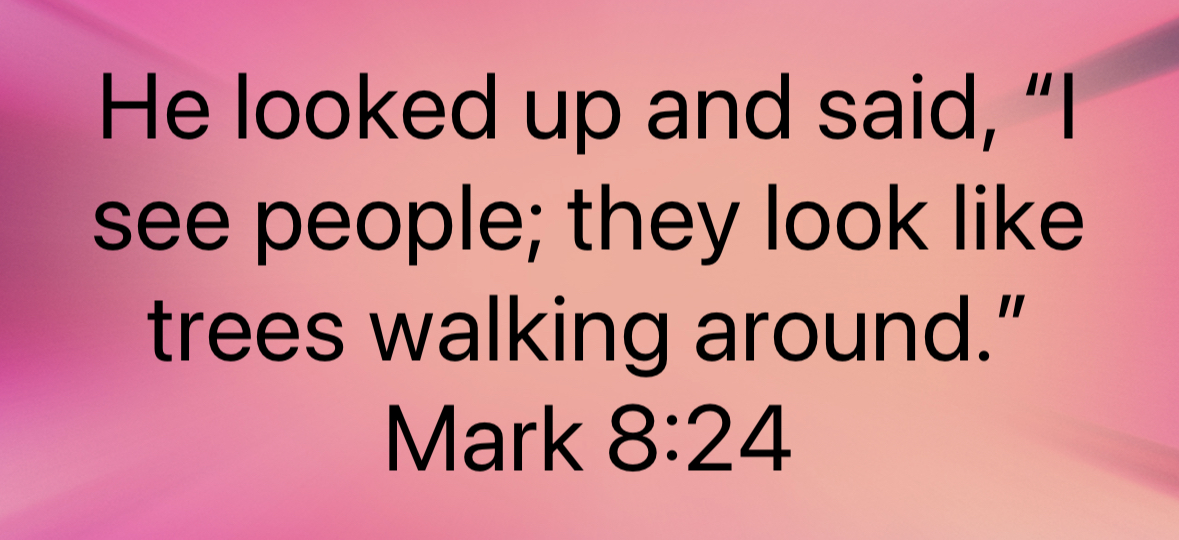
The blind man received his sight back, but the miracle was partial. We should try to see people the way God sees people. We need to open our eyes to what is going on around us and take notice. Does it really take that much extra time to interact properly with the human beings that are around us? I believe there are potential divine appointments all around us if we would just open our eyes and take the time to see.
How Does God See People
The obvious question to ask is: How does God see people? Are there different kinds of people?
I’ve read through the Gospels with this question in my mind. I stopped and took note every time there was a hint in the scripture of how God sees people. At the end of this post are scriptural references of How God sees people.
First of all, we can’t see people the way God does. He sees the heart and knows much more detail than us. We must not make the mistake of thinking we know people the way God does. I’d hate to make a rash incorrect judgement about a person from what little I know of them. So first, we should be very careful not to judge others to be in a certain category as we don’t know the full story of their life nor do we know what they are dealing with.
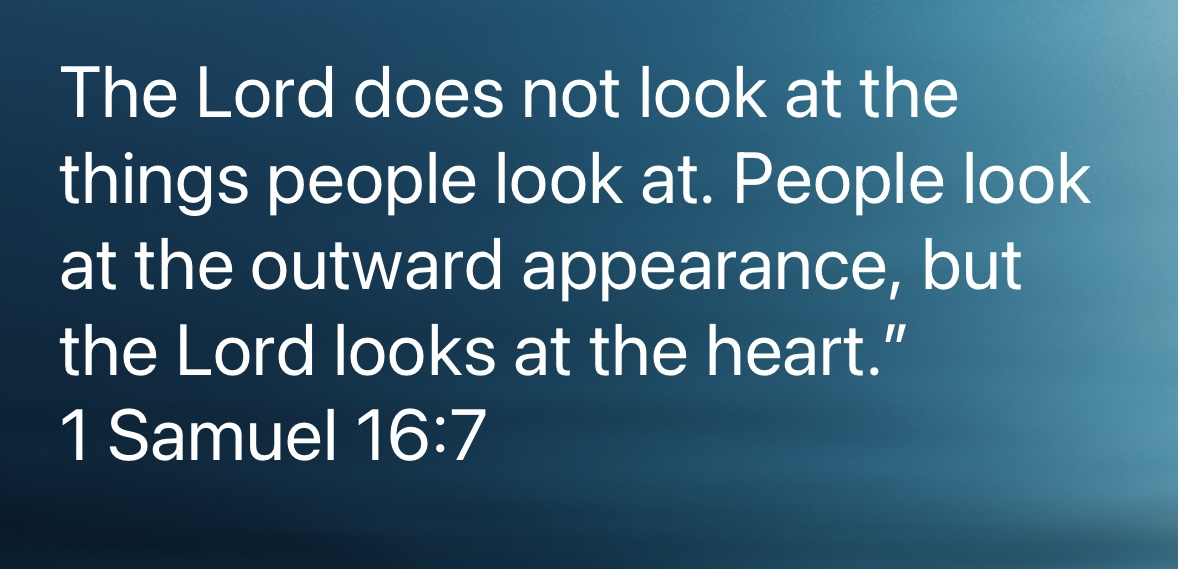
However, I still want to know how God views people in a general way.
- Does he love all or some?
- Does he hate some?
- Is God patient, indifferent, or grievous toward those that do not know Him?
I reject any religion that promotes a false belief that God hates certain people. Scripture is clear on this. God loves people. God wants to have personal intimate relationships with people.
Are there Different Kinds of People
Maybe a better question would be, “How does God want us to see people”
First of all, we are individuals, uniquely made. We are all different. Our differences should be celebrated not diminished.
Jesus didn’t have soft words for the Pharisees, but he did show compassion for the broken hearted. Jesus treated people differently, based on what? Was it arbitrarily or were there reasons? I would think the obvious answer would be that God does not do things arbitrarily, especially with how he treats people, and when eternal conditions are riding on His treatment.
Jesus’s Main Focus in Life
From reading through the book of Matthew, Jesus’s interactions with people seemed to be a secondary focus in his life.
His primary focus was to do the work that the Father gave him to do, and that work was to be a sacrifice for the forgiveness of sins. Jesus came to suffer and die. That was his main purpose: to be the messiah, to start something new. Who did he die for? That’s the big question.

Believing that Jesus is the Christ, the Messiah, the son of God is the core belief that we must believe to be saved, but who’s Messiah is he?
We can’t stop at believing in Jesus as our personal savior. I don’t think we are to believe in Christ then live in a cave, isolated, as a monk, or just interact with fellow believers. Yes, we should interact with family, friends, believers, but also all people outside our social groups, or those that cross our path as we walk through life.
Jesus didn’t have to interact with people to accomplish his main purpose, but he did. He could have come to earth, lived a sinless life, died, rose from the dead, and returned to heaven with little to no interaction with people, but he didn’t. Why?
Prayer
It appears that Jesus was in constant communication with the Father. When he was tired or worn out, he would retreat to a solitary place to pray.

But after being refreshed, he would again return to interacting with people to teach, but he was always showing compassion as well on a personal level sometimes telling those he helped not to share what happened. Why? Why be secretive about a healing? It appears that He didn’t want "meeting needs of people" to get in the way of His message (His teachings).
If we don’t have these 3 things down then we likely will not have a correct view of others.
- We need to know who Jesus was according to His main purpose - the Messiah
- We need to be in constant communication with God.
- We need to know our purpose.
So, we need to seek God first though scripture, reflection, life’s circumstances, and prayer. We need to understand His purpose in life if we are to understand our purpose in life.
Repentance
The first relational view I noticed in the book of Matthew that Jesus had toward humans was that he saw the need for ALL people to repent. That was the same message of John the Baptist. What a coincidence. Or was it?
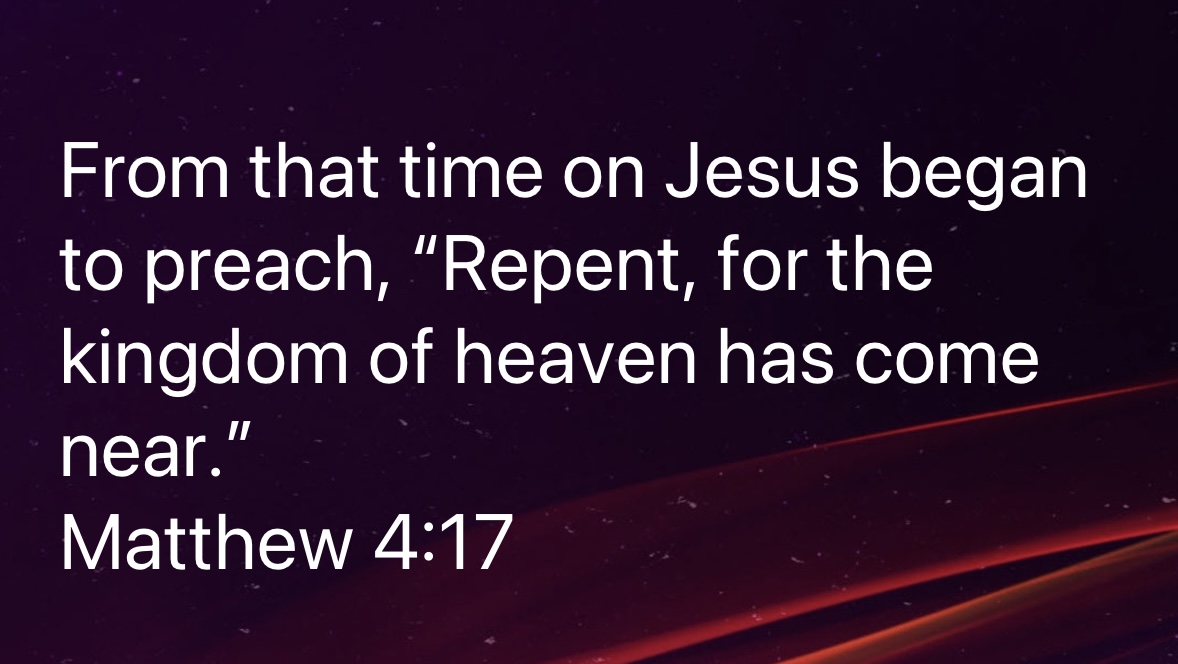
Let’s face it. Some repent and some do not. Some people, when confronted with wrongdoing, feel remorse and desire to make it better or undo what they have done. Some do not. Some get defensive. Some just ignore complaints.
Good News of the kingdom of God
The second relational view I noticed in the book of Matthew that Jesus had was that He saw the need for ALL people to be taught the Good News of the kingdom of God. Throughout the life of Jesus, He was viewed as a teacher. Over and over, it is written that Jesus was teaching about the kingdom of God. People called him teacher or Rabi. What was this good news of the kingdom.
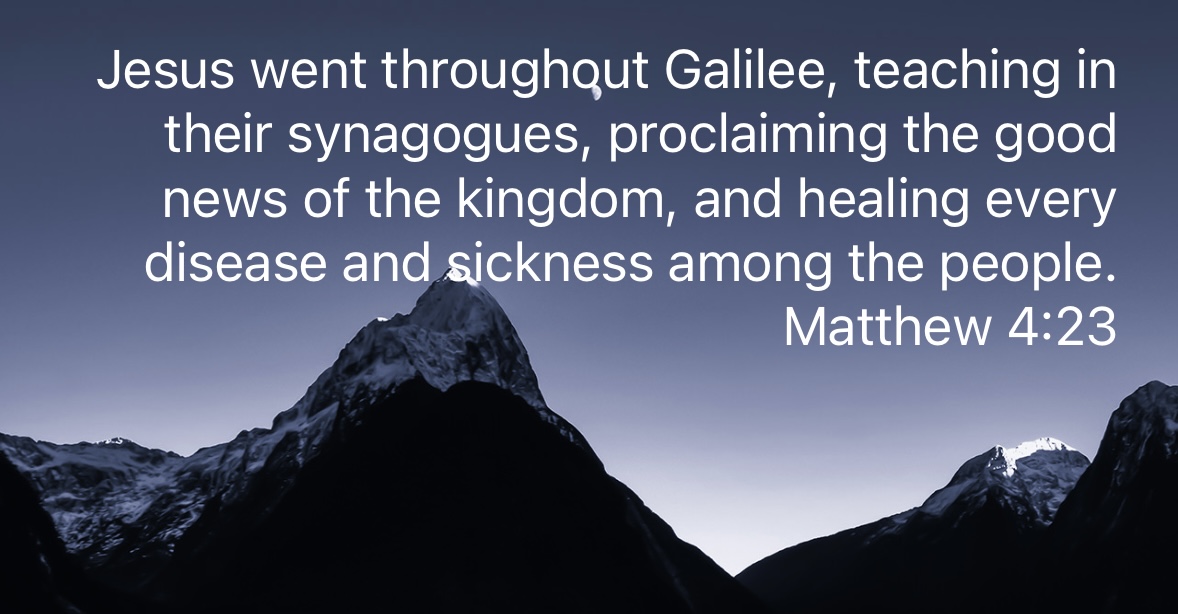
The good news of the kingdom is simply this:
- It exists (heaven is a real place). God, the father, is in heaven. There is life after death, and it will be glorious…for some. For others it will not be glorious, to say the least.
- Heaven is obtainable for the regular person. Not just the elite (not the chosen, not the select, not the privileged)
- God has provided a way to get there.
- We are all on the same plane (ground level). There is no hierarchy (no ladder, no pyramid).
Jesus possible taught his entire new teaching at the sermon on the mount and it is recorded in Matthew 5 through 7.
After Matthew 5 through 7 there are numerous encounters of people approaching Jesus. Basically, He saw their pain and did something about it. He brought physical healing to many. But it was not center stage. He fed them, opened blind eyes, raised the dead, and warned them. He had compassion for them, but this seemed to be secondary to teaching and commanding people to follow his teachings.
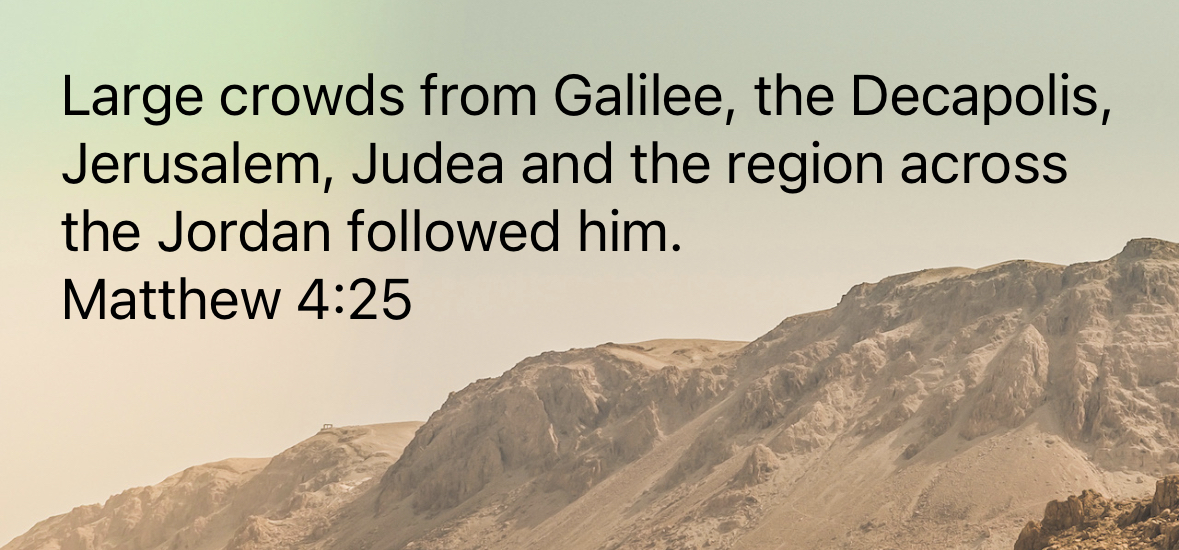
He was interested in the masses. He apparently wanted large crowds to follow him. This didn’t happen by chance. He took time for strangers, but He also created a following of large crowds. He started a movement that has lasted to this day.
New Teaching
Matthew 5 records the teaching of the beatitudes and Jesus’s new, radical teachings such as love your enemies. These teachings were new and different. The chapter ends with a call to perfection. What did Jesus mean by that? Is it possible to be perfect?

Matthew 13 tells us perfection is not possible on our own, but it is possible with God. Perfection is also needed to be in the presence of God the Father in the kingdom of God.
Jesus commanded perfection, so perfection must be possible; however, Jesus obviously saw humanity as falling short of perfection needing to repent. How is this to be reconciled? Is repentance the path to perfection?
Jesus drew all people to himself. There is no record of Jesus turning people away. He came to die on a cross for all, but that didn’t stop him from drawing people to himself and encouraging them to pursue lasting righteousness. People cannot count on self-righteousness but only the righteousness found in faith in God. His main purpose, his teachings, and his interactions with people were all uniquely interconnected.
Distinctions of Different Kinds People
Up until Matthew 7 Jesus seemed to make no distinction between people. Everyone was in one group. All needed to repent, and all needed to strive for perfection.
Matthew 7 introduces the first distinction between people that Jesus had based on how people responded to His teaching. There were wise people and foolish people based on the person’s actions to not only listen to His teachings but to put into action His teaching. Jesus called people wise or foolish based on their response to His teaching.

I suppose we can stop here. If we want to be called “wise” by Jesus we need not understand anything more than Matthew 5 through 7 and put those teachings into practice.
As far as I can tell, up until Matthew 7, there are three types of people:
- Those that have not heard the good news of the kingdom of God.
- Those that heard the good news and obeyed the teachings of Jesus (the wise)
- Those that heard the good news and ignored the teachings of Jesus (the foolish)

The Human Heart Condition
Matthew 13 further defines the different types of people with the parable about the soil. There are:
- People who hear but don’t understand (the path)
- People who hear, accept, but fall away with trouble or persecution (the rocky ground)
- People who hear, accept, but fall away due to cares of the world (the weedy soil)
- People who hear, accept, and put into action his teachings which results in fruitfulness (good soil)
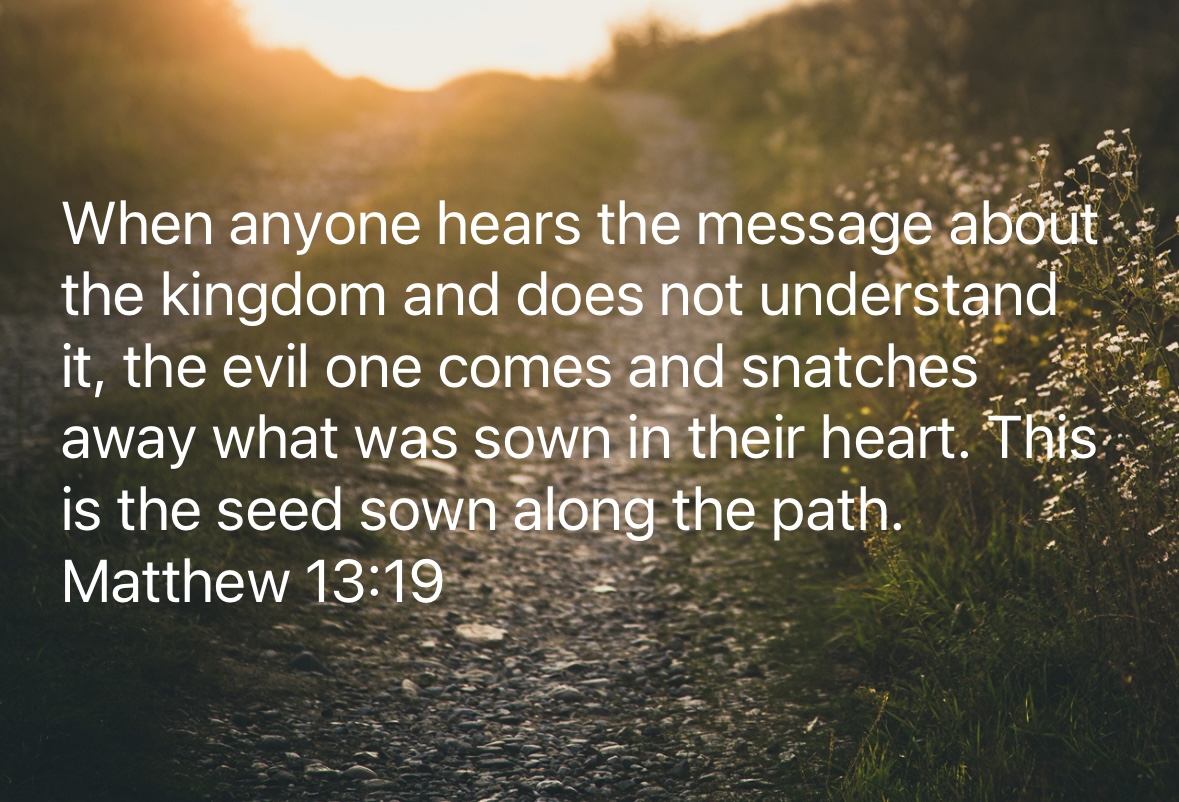
Children
Reading through to the end of the book of Matthew there is another group of people that Jesus makes a strong distinction that they exist. We are taught that in this world we have weeds and wheat, unbelievers and believers, but we also have the innocent. Jesus made it abundantly clear that there was something very special about innocent children. He did not want them to be hindered from coming to him. Why?
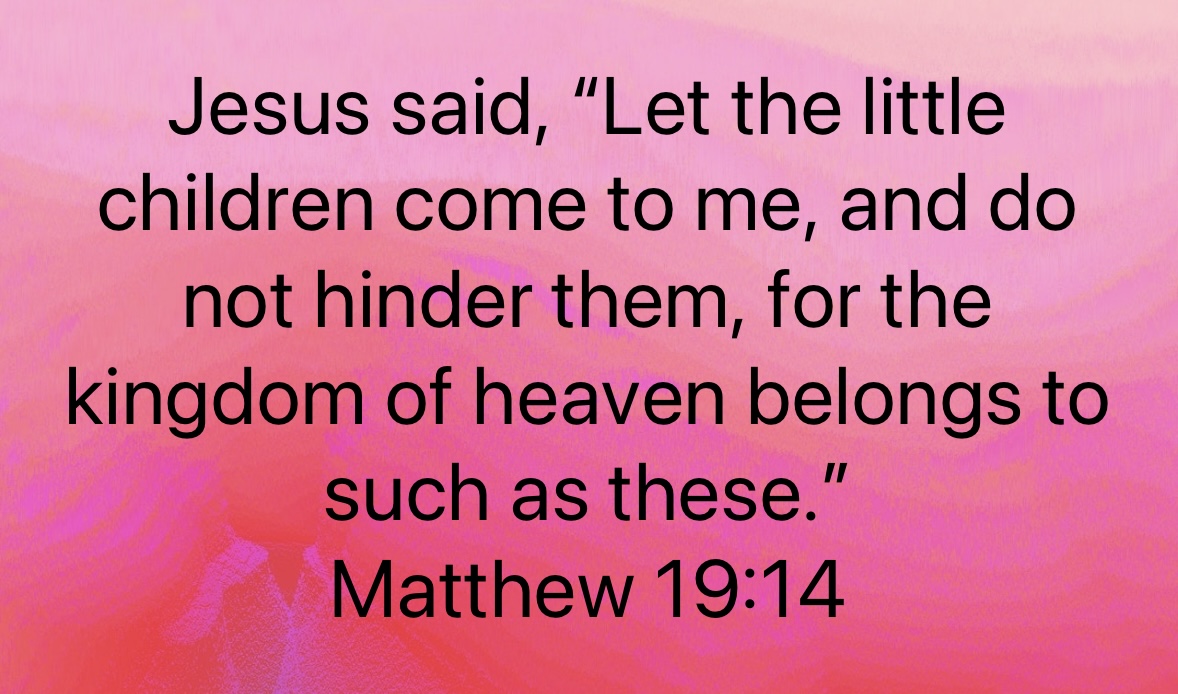
Putting it all together. There are 6 distinct kinds of people identified in the bible that Jesus teaches us to be aware of when we interact with people.
- Children (the innocent)
- Those that have not heard
- Those that heard but did not understand
- Those that heard but have fallen away due to troubles
- Those that heard but were ineffective due to the cares of the world
- Those that heard His teachings and put them into practice.
First, we should make sure we know where we are. Have we heard? If so, what are we doing with that knowledge?
By understanding who we are and who people are, we might be better able to interact with people. We are told to go into all the world and make disciples. Therefore, we must interact with people to do that.
- Surely, we can love and care for children along the way.
- Surely, we can share with those that have not heard.
- Surely, we can be ready to give an answer to someone that might not understand.
- Surely, we can help with people’s troubles.
- Surely, we can point out the fleeting cares of this world.
- Surely, we can share the work and encourage fellow workers that are fruitful.
But we can’t do any of this if we don’t know and put into practice Matthew 5 through 7.
The Good News according to Matthew
What is the good news that Jesus proclaimed throughout all the towns and villages? If all we had was the book of Matthew, how would we define the good news?
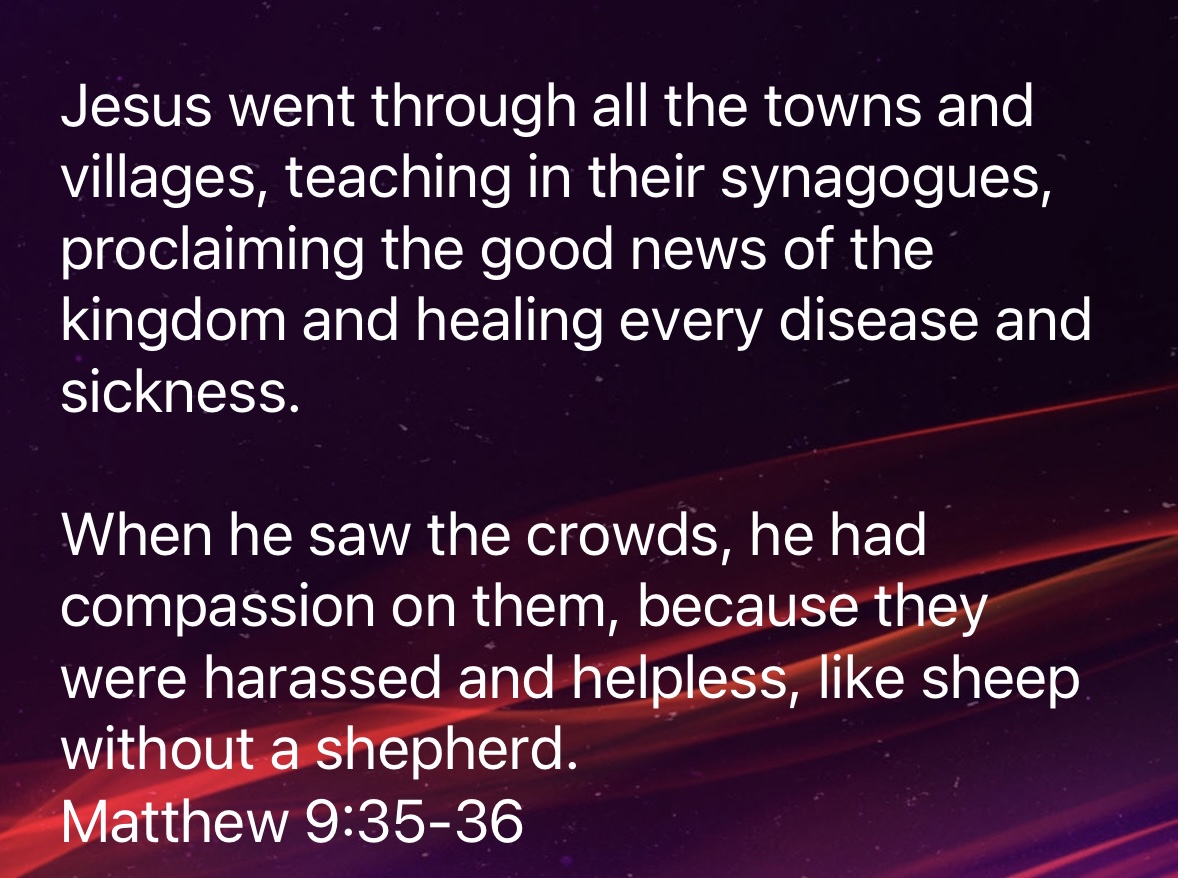
Would it be: “Perfection is possible”
It appears that it is possible. It starts with awareness that we are not perfect which leads to repentance and obedience. When we die, will Gods say of us, “well done?” If so, why?
The Wrong Path
There was one group of people that Jesus was exceptional rough on. The Pharisees were self-righteous religious rulers. They were trying very hard to reach perfection. We better make sure we don’t resemble them. The grave sin of the Pharisees was not that they were earnestly trying to be holy. They were earnestly searching scripture and zealously trying to live it out. That was commendable. We should do that.
Why was Jesus sad about the man who wouldn’t sell everything (Matthew 19) and follow him?
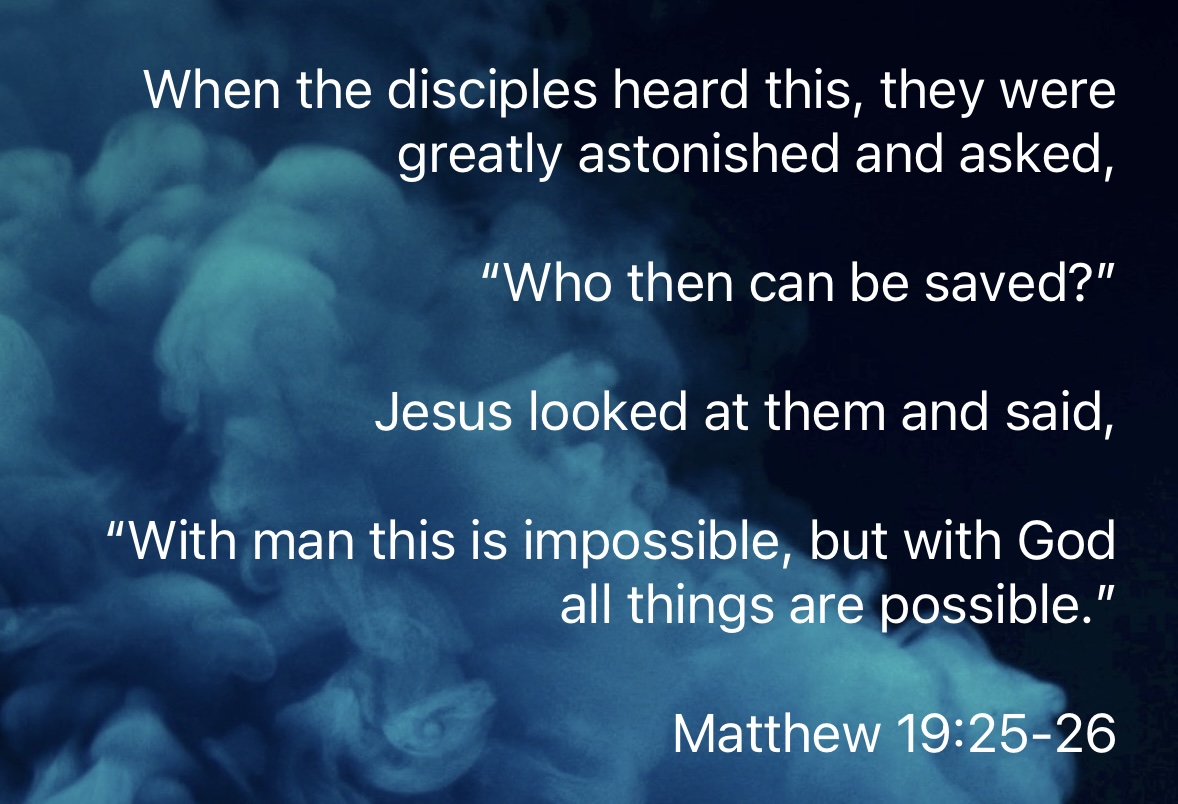
Nicodemus (John 3) was a Pharisee, but he found the right path and he didn’t sell everything and follow Jesus.
Jesus said unless your righteousness exceeds the Pharisees you will not enter the kingdom. Interesting. Why was he so upset with most of the religious rulers of the time? Because they missed the core teaching. They were “Those that heard but did not understand” they were those on the path, but they needed to be re-taught. They were misunderstanding the message of repentance and reliance on God. Their reliance was on self and heritage.
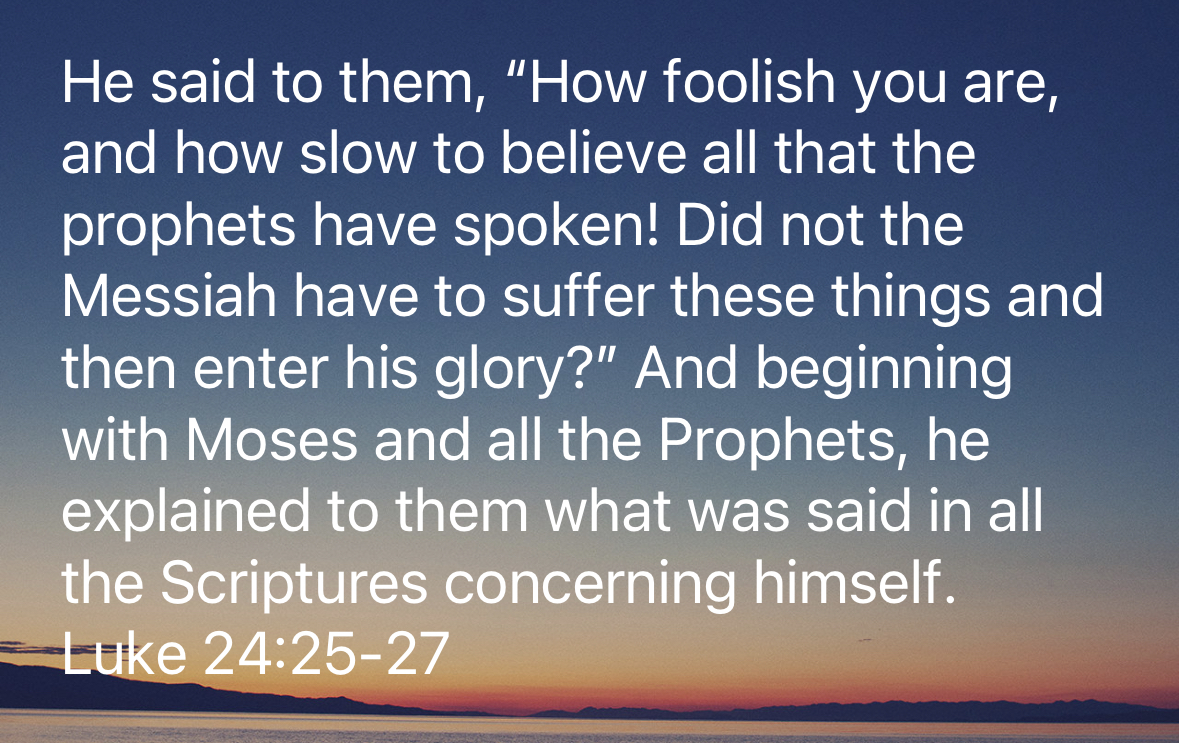
They should be pitied. It is sad that they missed it. They were rejecting the cornerstone, Jesus Christ.
The Right Path
John the Baptist got it right. Jesus said of those born of women there was no one greater than John. What did he do to get this praise?
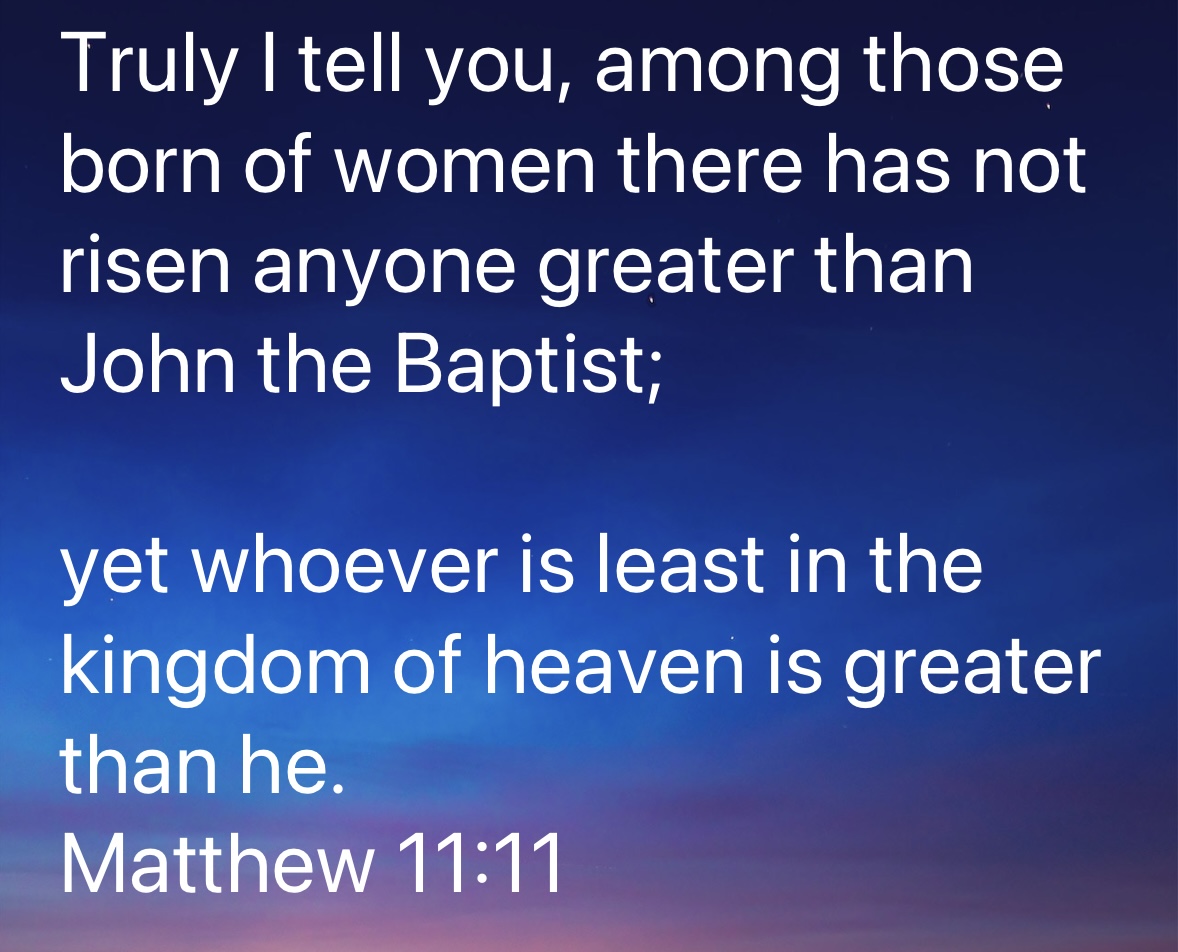
John the Baptist had things in correct order.
- Repent
- Believe in the Messiah
- Look for the coming Messiah
- Warn others about the end of life which comes to all.
This was the path of an Old Testament prophet.
Yet, Jesus said, “whoever is least in the kingdom of heaven is greater than John.” What does this mean? John the Baptist was acknowledged by Jesus to be the greatest human of all time, but a nobody (a poor beggar) that makes it to heaven is greater. How? What was John missing? He was missing exactly what he told us he was missing, the Baptism of fire.
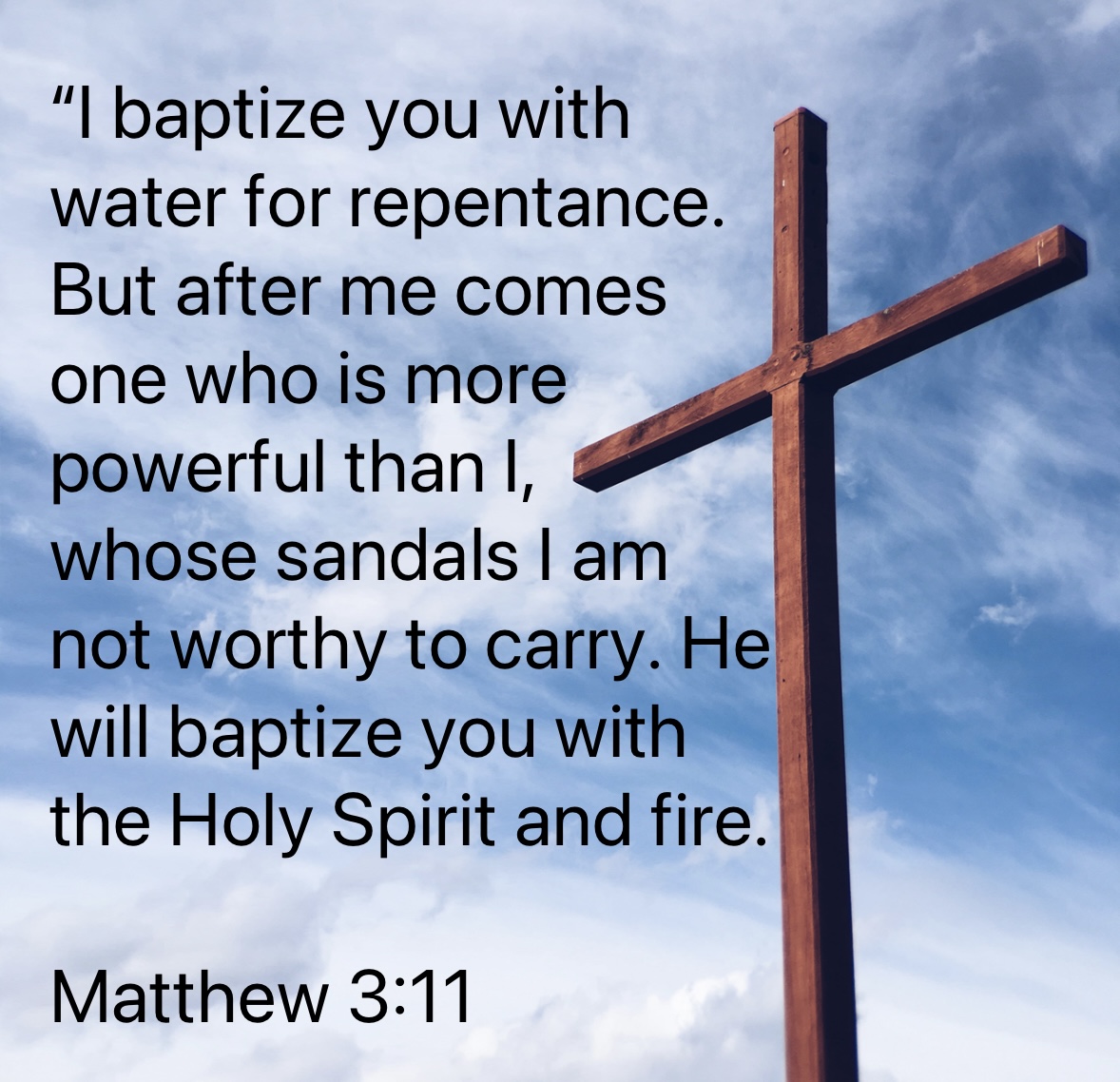
How else can we possibly walk successfully through life if not lead by the Spirit of God.
Perfection with God
So, the good news is we are all sinners, and in need of a savior. The really good news is that there is a savior and his work is complete. News is not news if it is not shared.
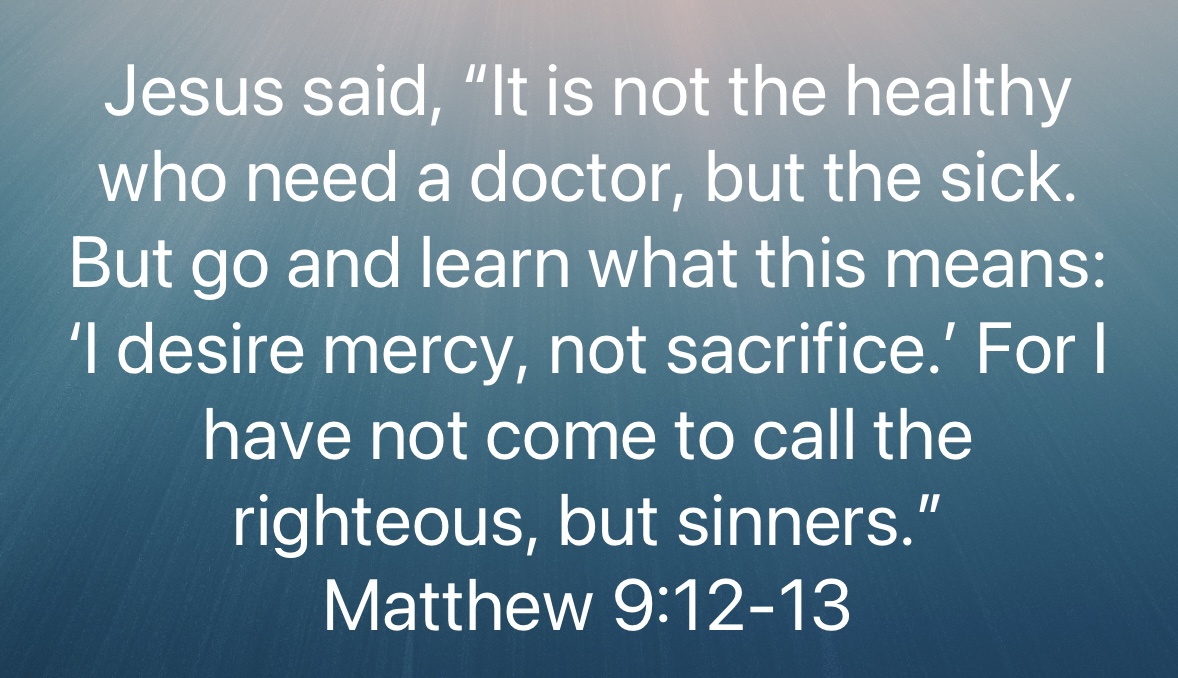
Matthew 5 through 7 appears to be an ideal path to follow. We should strive for this and not act religious by saying it is impossible to do good. If our Lord is calling us to strive for perfection, it must be possible.
So, how do we start? How do we strive for perfection? The specific immediate response might be different for everyone, so listening and praying must be of first importance. But the direction (the path) is the same for everyone. It starts with repentance.
I’ve been working on one specific teaching from Matthew 5 through 7 each day. I’d rather try to follow the teachings of Jesus Christ and fail than not try at all and fail in an apathetic way.
For example:
- today… I will try and make peace with someone.
- today… I am going to put into check my prideful attitude.
- today… I am going to give to others that ask.
- today… I am going to ask someone to forgive me.
- today… with God’s help, I will….what? … do good when the opportunity comes? …Yes, it is possible to do good. What is He specifically calling me to do today?
It is false humility to say, “there is nothing good in me, all I need is Jesus” God wants our very best effort. We should strive to listen and obey and put into action what He taught.
Maybe, the best good I can do today is to avoid a specific evil that has been a problem in the past.
Or maybe I should open my eyes and “start seeing people” who are around me.
With God’s help, it is possible.
What is essential Christian faith? https://abbottforensic.com/faith/
What is the simple gospel? https://abbottforensic.com/gospel/
Do we choose life and death? https://abbottforensic.com/choose/
If I could go back in time. https://abbottforensic.com/time/
My 1st best advice to my children – Study the words of Christ https://abbottforensic.com/words/
My 2nd best advice to my children – Seek answers to your questions https://abbottforensic.com/seek/
My 3rd best advice to my children – Start seeing people https://abbottforensic.com/start/